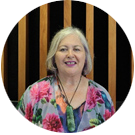-
For Whānau Manaaki Family Caregivers
- Kete Aronui Maori Palliative Care A site for whānau manaaki, family caregivers
- Te Ipu Aronui Road Map
- Kete Tuauri
- Spirituality and wairua
- Karakia definition
- Diverse spiritual faiths and practices
- Spiritual safety and protection
- Spiritual care within hospitals, hospices and aged residential care services
- The power of karakia
- Spiritual support at time of death
- What if you do not know your spiritual care customs?
- Kete Aronui - rongoā
- Rongoā healing
- Forms of rongoā
- Use of rongoā rākau (natural plant medicines) is increasing
- Are you thinking about using rongoā?
- Include your rongoā healer in your health care team
- Self-care
- Te Ipu Aronui’s Kete Tuauri
- Staying with the tūpāpaku
- Karakia before and after death
- Preparing the tūpāpaku (body)
- Caring for the tūpāpaku (body) after death
- Planning and preparation for care following death
- Whakanoa (spiritual clearing of environment process)
-
For Health Professionals
- Whanaungatanga - Establishing a relationship
- Connections take time
- First contact - building a rapport
- Rich histories and lifestyles
- Building trusting relationships
- Whānau systems of care Care roles within whānau
- Geographical location and end of life care
- Challenges whānau face
- Cultural safety - more effective than cultural competency
- Cultural safety - a definition
- Māori health and palliative care workforce
- Strengthening Māori cultural safety
- Caring for Māori health professionals
- Tikanga
- Ngākau pono Working with a sincere heart
- Caring with aroha
- Self-care
- Te Reo Māori The Māori language
- New Zealand history
- Kaumātua tino rangatiratanga Independence, authority
- Places kaumātua are cared for
- Dying in a healthcare setting
- Living in a ‘home’
-
Pae Herenga Research Background
- Healthcare providers
- Palliative care resources
- Support services
- Grief and loss support
- Research
- Tangihanga and funerals
- Links and Information for Health Professionals
- Te Reo Māori Resources
- Cultural Safety
- New Zealand History
- Pūrākau
- Advanced Care Planning (ACP)
- Medicines Directory
- Publications
- Māori Data Sovereignty
- Covid 19 Study
Pae Herenga Study
The Pae Herenga Research Study
Nau mai, haere mai – welcome, welcome.

Tēnā koutou katoa. Nau mai, haere mai ki te pae tukutuku Te Ipu Aronui. My name is Tess Moeke-Maxwell and I am the Principal Investigator for the study, Pae Herenga. This study was called for by the Te Ārai Palliative Care and End of Life Research Group’s Kāhui Kaumātua Advisory Group.
A few years ago Matua Rawiri Wharemate approached me because he had been speaking to kaumātua and they were concerned that whānau, many whānau, had been unable to retain their care customs, through no fault of their own.
We know what we’ve been through in Aotearoa – loss of lands, loss of language, and with that we also lose culture. Many of our tūpuna, our grandparents, have passed on as well. So those of us who have been called to provide care to a kaumātua (older person) at end of life, are really in need of information to help us.
We believe that our cultural customs really strengthen us to provide care to adults and kaumātua, and to everyone.
In the School of Nursing where I work at University of Auckland, our main objective in Te Ārai is to help bring healing and wellness and a sense of upliftment to kaumātua through their aging and end of life journey.
On this website we want to bring you information from the participants from the Pae Herenga study. We interviewed 61 whānau; these were people that had a life limiting illness, or they were whānau members who cared for them - we call them ‘whanau manaaki’ - family caregivers. We interviewed rongoā practitioners, people who have expertise in spiritual care, and also Māori health professionals. We have 61 of these stories to draw on and 22 digital stories and that’s what’s informing the content on this website, Te Ipu Aronui. So come and fill up your kete. Have a look and see what’s in here for you. Add it to what’s already in your caregiving kete. We wish you all the best on your journey as you care for your kaumātua and your whānau. Kia ora!
In this section you will be introduced to the Pae Herenga research project, our research team and our study participants. Click on people’s names to learn more about them.
The Pae Herenga Research Study
Te Ārai Kāhui Kaumātua Advisory Group (Te Ārai Palliative Care and End of Life Research Group) called for the Pae Herenga study as they observed that many whānau no longer have access to their ancient tikanga (customs) and kawa (ceremonies) handed down from tūpuna (ancestors). These cultural customs are hugely beneficial for guiding and strengthening whānau to provide end of life care. The Te Ārai Kahui Kaumātua Advisory Group asked the Pae Herenga team to conduct a qualitative study using one-off face-to-face interviews with whānau, rongoā practitioners, tohunga practitioners and Māori health professionals. The aim was to gain an understanding of the traditional care customs whānau drew from (tikanga and kawa) at end of life. We also wanted to identify the things that health professionals did to help or hinder whānau to use their customs within different health care settings. We were granted funding from the Health Research Council of New Zealand (Rangahau Hauora Project Grant, 2017-2020) to conduct the Pae Herenga study and we also received ethical approval.

